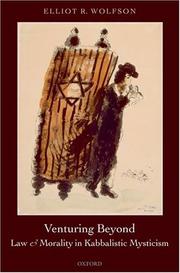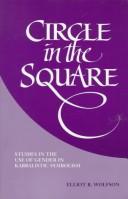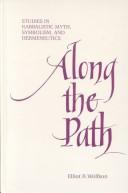| Listing 1 - 10 of 14 | << page >> |
Sort by
|
Book
ISBN: 0231185634 9780231185639 9780231185622 0231185626 0231546246 Year: 2018 Publisher: New York (N.Y.): Columbia university press,
Abstract | Keywords | Export | Availability | Bookmark
 Loading...
Loading...Choose an application
- Reference Manager
- EndNote
- RefWorks (Direct export to RefWorks)
Martin Heidegger (1889–1976) is considered one of the most influential philosophers of the twentieth century in spite of his well-known transgressions—his complicity with National Socialism and his inability to show remorse or compassion for its victims. In The Duplicity of Philosophy’s Shadow, Elliot R. Wolfson intervenes in a debate that has seen much attention in scholarly and popular media from a unique perspective, as a scholar of Jewish mysticism and philosophy who has been profoundly influenced by Heidegger’s work. Wolfson sets out to probe Heidegger’s writings to expose what remains unthought. In spite of Heidegger’s explicit anti-Semitic statements, Wolfson reveals some crucial aspects of his thinking—including criticism of the biological racism and militant apocalypticism of Nazism—that betray an affinity with dimensions of Jewish thought: the triangulation of the concepts of homeland, language, and peoplehood; Jewish messianism and the notion of historical time as the return of the same that is always different; inclusion, exclusion, and the status of the other; the problem of evil in kabbalistic symbolism. Using Heidegger’s own methods, Wolfson reflects on the inextricable link of truth and untruth and investigates the matter of silence and the limits of speech. He challenges the tendency to bifurcate the relationship of the political and the philosophical in Heidegger’s thought, but parts company with those who write off Heidegger as a Nazi ideologue. Ultimately, The Duplicity of Philosophy’s Shadow argues, the greatness and relevance of Heidegger’s work is that he presents us with the opportunity to think the unthinkable as part of our communal destiny as historical beings.
National socialism --- Judaism --- Heidegger, Martin, --- Heidegger, Martin, - 1889-1976 --- National socialism.
Book
ISBN: 1951498690 1951498038 Year: 2020 Publisher: Atlanta, Georgia : Scholars Press,
Abstract | Keywords | Export | Availability | Bookmark
 Loading...
Loading...Choose an application
- Reference Manager
- EndNote
- RefWorks (Direct export to RefWorks)
Commandments (Judaism) --- Good works (Judaism) --- Mitsvah --- Mitsvot --- Mitzvah --- Mitzvot --- Precepts (Judaism) --- Jewish law --- Jewish way of life --- Judaism --- Customs and practices

ISBN: 1282759418 9786612759413 0520932315 1598759167 9780520932319 1423745515 9781423745518 0520246195 9780520246195 9780520246195 0520246195 9781282759411 6612759410 9781598759167 Year: 2006 Publisher: Berkeley University of California Press
Abstract | Keywords | Export | Availability | Bookmark
 Loading...
Loading...Choose an application
- Reference Manager
- EndNote
- RefWorks (Direct export to RefWorks)
This highly original, provocative, and poetic work explores the nexus of time, truth, and death in the symbolic world of medieval kabbalah. Demonstrating that the historical and theoretical relationship between kabbalah and western philosophy is far more intimate and extensive than any previous scholar has ever suggested, Elliot R. Wolfson draws an extraordinary range of thinkers such as Frederic Jameson, Martin Heidegger, Franz Rosenzweig, William Blake, Julia Kristeva, Friedrich Schelling, and a host of kabbalistic figures into deep conversation with one another. Alef, Mem, Tau also discusses Islamic mysticism and Buddhist thought in relation to the Jewish esoteric tradition as it opens the possibility of a temporal triumph of temporality and the conquering of time through time. The framework for Wolfson's examination is the rabbinic teaching that the word emet, "truth," comprises the first, middle, and last letters of the Hebrew alphabet, alef, mem, and tau, which serve, in turn, as semiotic signposts for the three tenses of time-past, present, and future. By heeding the letters of emet we discern the truth of time manifestly concealed in the time of truth, the beginning that cannot begin if it is to be the beginning, the middle that re/marks the place of origin and destiny, and the end that is the figuration of the impossible disclosing the impossibility of figuration, the finitude of death that facilitates the possibility of rebirth. The time of death does not mark the death of time, but time immortal, the moment of truth that bestows on the truth of the moment an endless beginning of a beginningless end, the truth of death encountered incessantly in retracing steps of time yet to be taken-between, before, beyond.
Cabala --- Time --- History. --- Religious aspects --- Judaism. --- Philosophy. --- aqiva. --- azriel of gerona. --- azriel. --- babylonian talmud. --- bahir. --- bahiric text. --- berakhah. --- bereshit. --- binah. --- buddhism. --- death. --- destiny. --- eastern philosophy. --- eastern religion. --- emet. --- esoteric religion. --- immortality. --- islam. --- judaica. --- judaism. --- kabbalah. --- kabbalism. --- medieval kabbalah. --- mysticism. --- nature of time. --- philosophy. --- rebirth. --- religion. --- religious studies. --- semiotics. --- temporality. --- time. --- western philosophy. --- yiddishkeit.

ISBN: 1280905891 9786610905898 019153515X 1435623444 9781435623446 9780199277797 0199277796 9780191535154 138304225X 9781280905896 6610905894 Year: 2006 Publisher: New York Oxford University Press
Abstract | Keywords | Export | Availability | Bookmark
 Loading...
Loading...Choose an application
- Reference Manager
- EndNote
- RefWorks (Direct export to RefWorks)
This is an investigation of the relationship between the mystical and moral as it is expressed in the particular tradition of Jewish mysticism known as the Kabbalah.
Cabala --- Mysticism --- Ethics. --- Deontology --- Ethics, Primitive --- Ethology --- Moral philosophy --- Morality --- Morals --- Philosophy, Moral --- Science, Moral --- Philosophy --- Values --- History. --- Judaism. --- Ethics --- 296*41 --- 296*41 Kabbala --- Kabbala --- Cabbala --- Jews --- Kábala --- Kabalah --- Kabbalah --- Qabalah --- Jewish literature --- Magic --- History --- Judaism

ISBN: 0585059780 9780585059785 9780791424056 0791424057 9780791424063 0791424065 9781438424378 143842437X 0791424057 0791424065 Year: 1995 Publisher: Albany
Abstract | Keywords | Export | Availability | Bookmark
 Loading...
Loading...Choose an application
- Reference Manager
- EndNote
- RefWorks (Direct export to RefWorks)
This book deals with aspects of the gender imaging of God in a variety of medieval kabbalistic sources. It provides the key to understanding the phenomenological structures of mystical experience as well as the thematic correlation of esotericism and eroticism that is central to the kabbalah. The author examines the role of gender utilizing current feminist studies and cultural anthropology. He explores the themes of the feminization of the Torah, the correlation of circumcision and vision of God, the phallocentric understanding of divine creation as a process of inscription mythologized as an act of sexual self-gratification, and the phenomenon of gender-crossing in kabbalistic myth and ritual. Collectively, the studies explore in great depth the androcentric phallocentrism that is characteristic of medieval Jewish mysticism.
Cabala --- God (Judaism) --- Masculinity of God --- Femininity of God. --- Kabbale --- Dieu (Judaïsme) --- Dieu --- History --- Histoire --- Masculinité --- Féminité --- Zohar. --- ZOHAR --- GOD (JUDAISM) --- FEMININITY OF GOD --- CABALA --- RELIGION --- Zohar --- Femininity Of God --- Religion --- God (judaism) --- Femininity of god

ISBN: 0585059748 9780585059747 9780791424070 0791424073 9780791424087 0791424081 9781438424361 1438424361 0791424073 0791424081 Year: 1995 Publisher: Albany State University of New York Press
Abstract | Keywords | Export | Availability | Bookmark
 Loading...
Loading...Choose an application
- Reference Manager
- EndNote
- RefWorks (Direct export to RefWorks)
This book explores the fundamental issues in Jewish mysticism and provides a taxonomy of the deep structures of thought that emerge from the texts.
Mysticism --- Judaism --- History --- Cabala --- Sefer ha-bahir --- Hasidism --- Mysticism - Judaism - History. --- Hasidism - History. --- CABALA --- HASIDISM --- MYSTICISM --- RELIGION --- Religion
Book
ISBN: 0231546246 9780231546249 9780231185622 0231185626 9780231185639 0231185634 Year: 2018 Publisher: New York, NY
Abstract | Keywords | Export | Availability | Bookmark
 Loading...
Loading...Choose an application
- Reference Manager
- EndNote
- RefWorks (Direct export to RefWorks)
Martin Heidegger (1889-1976) is considered one of the most influential philosophers of the twentieth century in spite of his well-known transgressions-his complicity with National Socialism and his inability to show remorse or compassion for its victims. In The Duplicity of Philosophy's Shadow, Elliot R. Wolfson intervenes in a debate that has seen much attention in scholarly and popular media from a unique perspective, as a scholar of Jewish mysticism and philosophy who has been profoundly influenced by Heidegger's work.Wolfson sets out to probe Heidegger's writings to expose what remains unthought. In spite of Heidegger's explicit anti-Semitic statements, Wolfson reveals some crucial aspects of his thinking-including criticism of the biological racism and militant apocalypticism of Nazism-that betray an affinity with dimensions of Jewish thought: the triangulation of the concepts of homeland, language, and peoplehood; Jewish messianism and the notion of historical time as the return of the same that is always different; inclusion, exclusion, and the status of the other; the problem of evil in kabbalistic symbolism. Using Heidegger's own methods, Wolfson reflects on the inextricable link of truth and untruth and investigates the matter of silence and the limits of speech. He challenges the tendency to bifurcate the relationship of the political and the philosophical in Heidegger's thought, but parts company with those who write off Heidegger as a Nazi ideologue. Ultimately, The Duplicity of Philosophy's Shadow argues, the greatness and relevance of Heidegger's work is that he presents us with the opportunity to think the unthinkable as part of our communal destiny as historical beings.
National socialism. --- Nazism --- Authoritarianism --- Fascism --- Nazis --- Neo-Nazism --- Totalitarianism --- World War, 1939-1945 --- Causes --- Heidegger, Martin, --- Khaĭdegger, Martin, --- Haĭdegger, Martin, --- Hīdajar, Mārtin, --- Hai-te-ko, --- Haidegŏ, --- Chaitenger, Martinos, --- Chaitenker, Martinos, --- Chaintenger, Martin, --- Khaĭdeger, Martin, --- Hai-te-ko-erh, --- Haideger, Marṭinn, --- Heidegger, M. --- Haideger, Martin, --- Hajdeger, Martin, --- הייגדר, מרתין --- היידגר, מרטין --- היידגר, מרטין, --- 海德格尔, --- Chaintenker, Martin, --- Hāydigir, Mārtīn, --- Hīdigir, Mārtīn, --- هاىدگر, مارتين, --- هىدگر, مارتين,
Book
ISBN: 0253042585 0253042569 0253042577 Year: 2019 Publisher: Bloomington, Indiana, USA : Indiana University Press,
Abstract | Keywords | Export | Availability | Bookmark
 Loading...
Loading...Choose an application
- Reference Manager
- EndNote
- RefWorks (Direct export to RefWorks)
While many scholars have noted Martin Heidegger's indebtedness to Christian mystical sources, as well as his affinity with Taoism and Buddhism, Elliot R. Wolfson expands connections between Heidegger's thought and kabbalistic material. By arguing that the Jewish esoteric tradition impacted Heidegger, Wolfson presents an alternative way of understanding the history of Western philosophy.
Cabala. --- Cabbala --- Jews --- Kábala --- Kabalah --- Kabbala --- Kabbalah --- Qabalah --- Jewish literature --- Magic --- Mysticism --- Cabala --- Judaism --- Heidegger, Martin, --- Khaĭdegger, Martin, --- Haĭdegger, Martin, --- Hīdajar, Mārtin, --- Hai-te-ko, --- Haidegŏ, --- Chaitenger, Martinos, --- Chaitenker, Martinos, --- Chaintenger, Martin, --- Khaĭdeger, Martin, --- Hai-te-ko-erh, --- Haideger, Marṭinn, --- Heidegger, M. --- Haideger, Martin, --- Hajdeger, Martin, --- הייגדר, מרתין --- היידגר, מרטין --- היידגר, מרטין, --- 海德格尔, --- Chaintenker, Martin, --- Hāydigir, Mārtīn, --- Hīdigir, Mārtīn, --- هاىدگر, مارتين, --- هىدگر, مارتين,
Book
Year: 2020 Publisher: Brown Judaic Studies
Abstract | Keywords | Export | Availability | Bookmark
 Loading...
Loading...Choose an application
- Reference Manager
- EndNote
- RefWorks (Direct export to RefWorks)
The Book of the Pomegranate is a Hebrew edition of an important work by the Spanish kabbalist Moses de Leon (ca. 1240-1305). Sefer Ha-Rimmon, which was written in 1287, is particularly significant for study of the Zohar and the development of a theory of the commandment (mitzvot) and why one should do them.
Book
ISBN: 9004449345 9004449337 Year: 2021 Publisher: Leiden, The Netherlands ; Boston : Brill,
Abstract | Keywords | Export | Availability | Bookmark
 Loading...
Loading...Choose an application
- Reference Manager
- EndNote
- RefWorks (Direct export to RefWorks)
"The conception of time elicited by Wolfson from a host of philosophical and mystical sources-both Jewish and non-Jewish-buttresses the contention that it is precisely structural invariability that engenders interpretive variation. This hermeneutical axiom is justified, in turn, by the presumption regarding the cadence of time as the constant return of what has always been what is yet to be"--
Time --- Religious aspects --- Judaism.
| Listing 1 - 10 of 14 | << page >> |
Sort by
|

 Search
Search Feedback
Feedback About UniCat
About UniCat  Help
Help News
News